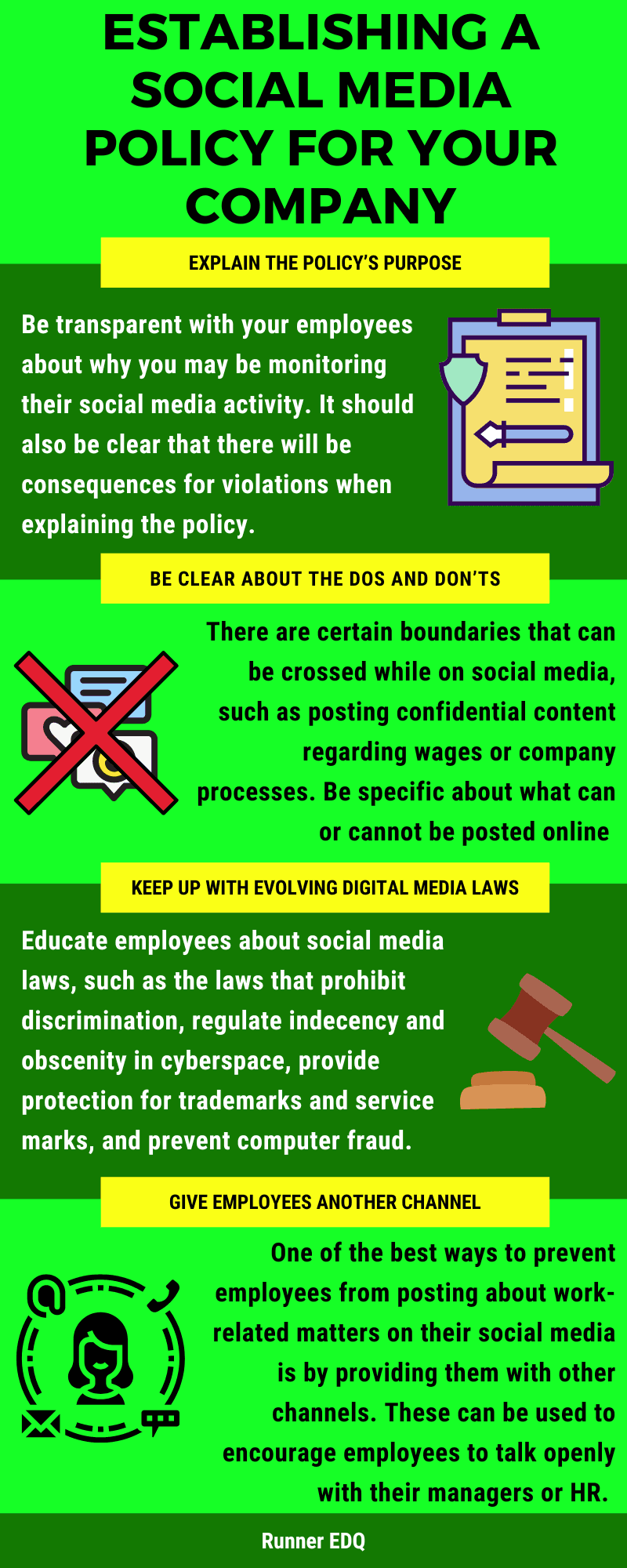Important Social Media Governance Strategies
3 MINUTE READ
Some employers monitor their employees’ social media activity to ensure they’re not misusing company time and negatively impacting their productivity. Other leaders monitor their staff’s social media accounts as part of reputation management, allowing them to see if an employee has made an offensive post that directly affects the company’s reputation.
There aren’t any laws restricting company leadership from monitoring their employees on their social media profiles. However, many employees will feel that monitoring their social media accounts is invasive and unethical – making them lose trust in leadership. If you don’t have an employee social media monitoring program, you may implement a social media policy instead. A social media policy can help curb many social media usage concerns. Here are some things to consider when establishing a social media policy for your company:
Explain the policy’s purpose
To maintain trust, be transparent with your employees about why you may be monitoring their social media activity or implementing a social media policy. The best way to educate employees and improve retention is to provide case scenarios of the impacts of improper social media usage. When communicating the policy’s purpose, it should also be clear that there will be consequences for violations.
Be clear about the dos and don’ts
Employees may feel that they’re allowed to talk about anything they want on their social media accounts, especially if they’re posting beyond working hours. However, there are certain boundaries that can be crossed, such as posting confidential content regarding wages or company processes.
Be specific about the type of posts that may put the organization and its employees at risk and therefore, should not be posted on public platforms. Some companies don’t allow their employees to take photos of their facilities so as not to reveal operational secrets. Other companies ask their employees not to take and post photos of their colleagues to respect their privacy.
Keep up with evolving digital media laws
Employees may complain about restrictive social media policies enforced by their company. However, these rules are in place for their protection as well. Many people don’t realize that there are both criminal and civil laws surrounding social media enforced at the state and federal levels. Educate employees about these laws, such as the laws that prohibit discrimination, regulate indecency and obscenity in cyberspace, provide protection for trademarks and service marks, and prevent computer fraud and abuse.
Give employees another channel
One of the best ways to prevent employees from posting about work-related matters on their social media is by providing them with other channels. These channels can be a social media group dedicated to employees where they can share posts. And rather than use their social media to express their grievances about working conditions, encourage employees to talk openly with their managers or HR.







